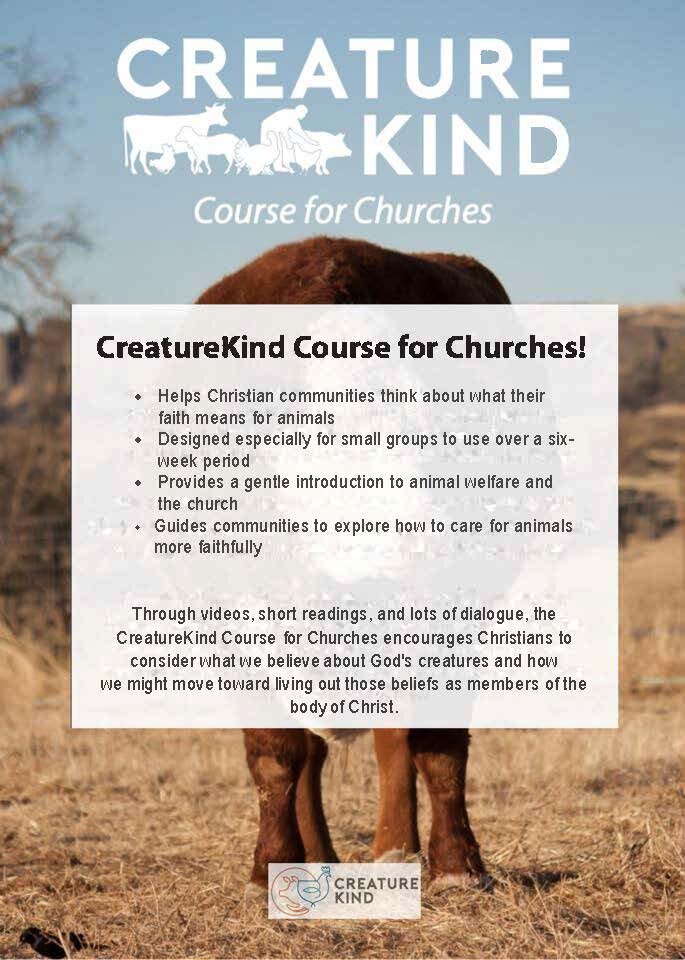by Sarah Withrow King
The season of Lent was not a strong part of my Christian formation. To me it was, at most, a time to stop eating some food I liked, to be “spiritual.” In high school, following the lead of a cute camp counsellor, I gave up meat for Lent…a commitment I abandoned after approximately two days when I ordered a turkey sandwich because I forgot that I had become a vegetarian.
It wasn’t until I became a parent, and I started looking for ways to help expand my son’s sense of Christian community, that I started paying closer attention to the rhythms of the Church calendar, and to Lent.
Whether you are a Lenten new-comer, like me, or have been marking this period for as long as you can remember, we hope these resources connecting Christian faith with animals will be a welcome addition to your Lent practice.
Wild Hope: Stories for Lent from the Vanishing
“Attention to the amazingness of our arkmates routes us directly to the heart of Lent. The season means to rouse us from our self-absorption. Absorbed instead in the beauty of other creatures, we see how they value their lives, lives woven together across species in beautifully complex webs. The nine-ounce red knot flies from the southern tip of the world to meet the horseshoe crab at precisely the week she crawls from the waters of Delaware Bay to lay her eggs. Once alive to the exquisite web holding all creatures, we also see the holes slashed through it. By us. We’re enraptured by the animals’ beauty, and we’re horrified by the suffering we inflict on that beauty. With Saint Paul we can hear all creation groaning, including ourselves.” Gayle Boss, from the introduction to Wild Hope: Stories for Lent from the Vanishing.
With a reading for each day of Lent, and Easter Sunday, Wild Hope connects our human stories with the stories of individual animals in creation. A simultaneously beautiful, heart breaking, and hope-filled work. Wild Hope: Stories for Lent from the Vanishing. Text Copyright © 2020 Gayle Boss. Illustrations Copyright © 2020 David G. Klein. Available from Paraclete Press.
CreatureKind Small Group Study
“I was really glad to be able to consider a lot of areas of scripture that I hadn't thought about before. I found learning about the environmental cost and the way animals are treated on these farms to be very persuasive, in combination of a better understanding of how Christians should think about caring for other creatures and the earth,” said one participant. Post-course surveys show that in addition to thinking differently about animals, participants commit to changing their daily dietary choices, as well.
You can lead a church or community discussion using CreatureKind's free course! Our six-week small group study:
helps Christian communities think about what their faith means for animals,
is designed especially for small groups to use over a six-week period (like Lent),
provides a gentle introduction to animal welfare and the church,
and guides communities to explore how to care for animals more faithfully.
Through videos, short readings, and lots of dialogue, the CreatureKind Course for Churches encourages Christians to consider what we believe about God’s creatures and how we might move toward living out those beliefs as members of the body of Christ. We provide all the course materials, and a guide for leaders. You don't need to have any specialist knowledge, just the motivation to help people think and discuss together. Download the course today!
Honorable Mention: We Are The Weather
“The chief threat to human life—the overlapping emergencies of ever-stronger superstorms and rising seas, more severe droughts and declining water supplies, increasingly large ocean dead zones, massive noxious-insect outbreaks, and the daily disappearance of forests and species—is, for most people, not a good story. When the planetary crisis matters to us at all, it has the quality of a war being fought over there. We are aware of the existential stakes and the urgency, but even when we know that a war for our survival is raging, we don’t feel immersed in it. That distance between awareness and feeling can make it very difficult for even thoughtful and politically engaged people—people who want to act—to act.” Jonathan Safran Foer. We Are the Weather
Safran Foer applies the art and science of storytelling to help deeply connect readers to the realities of the climate crisis. While the book doesn’t connect Christian faith with animals, Safran Foer explores spiritual themes familiar to Christians. This may be a good resource to use for a group open to spiritual seekers, as well as Christians. Written in five parts, the book can be studied on your own or in a group. We Are the Weather. Text Copyright © 2019 by Jonathan Safran Foer. Available from Farrar, Straus and Giroux.






